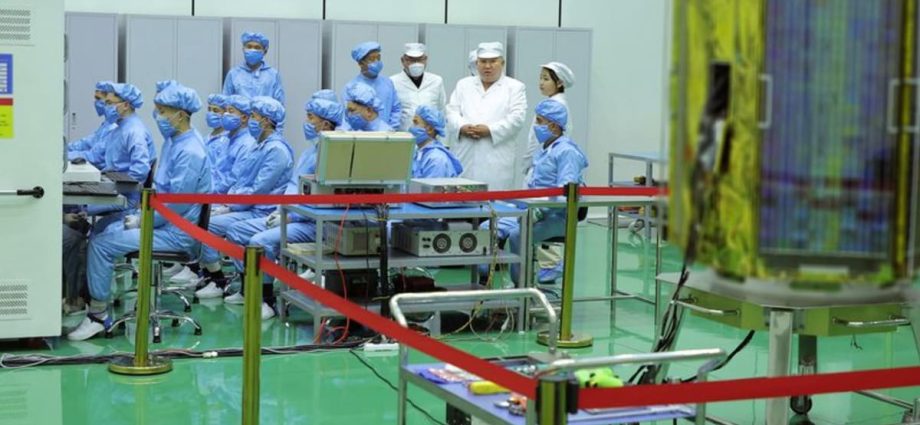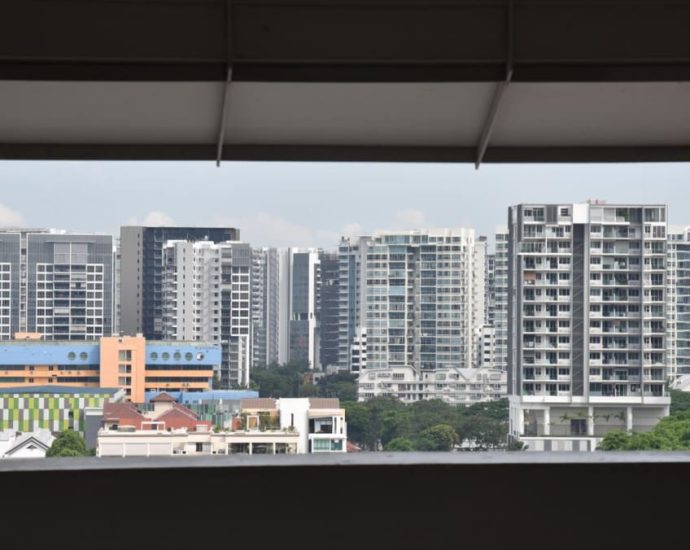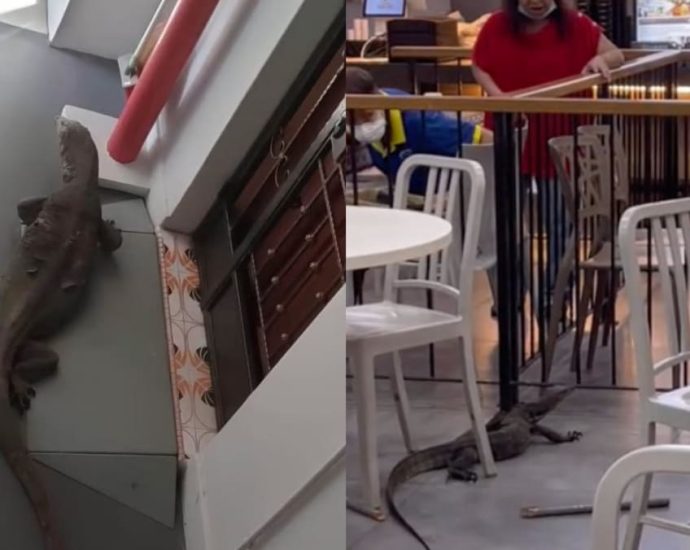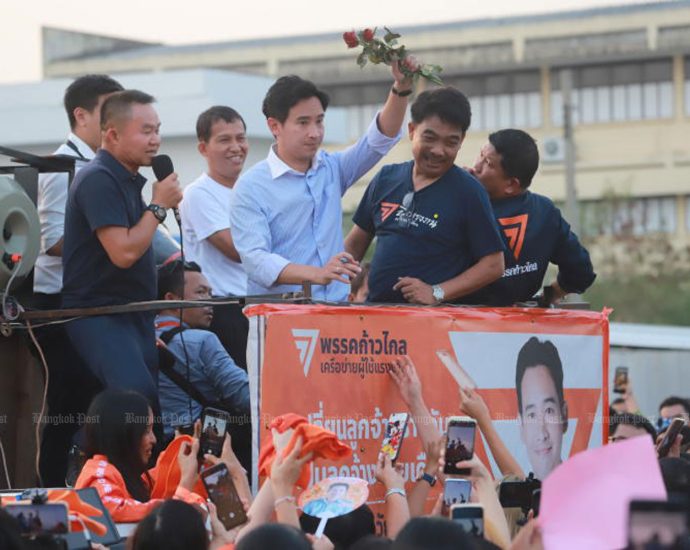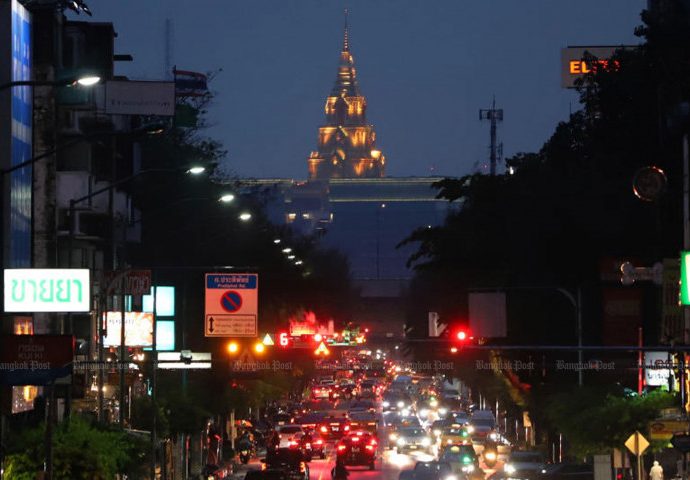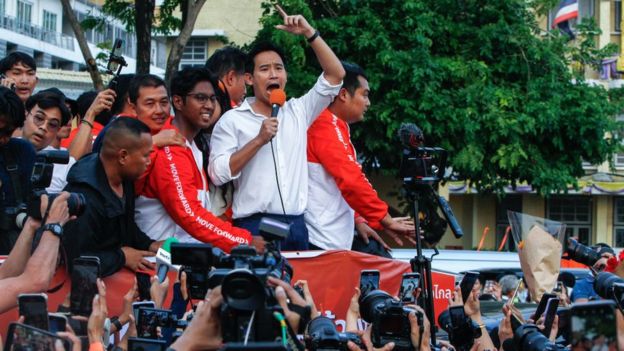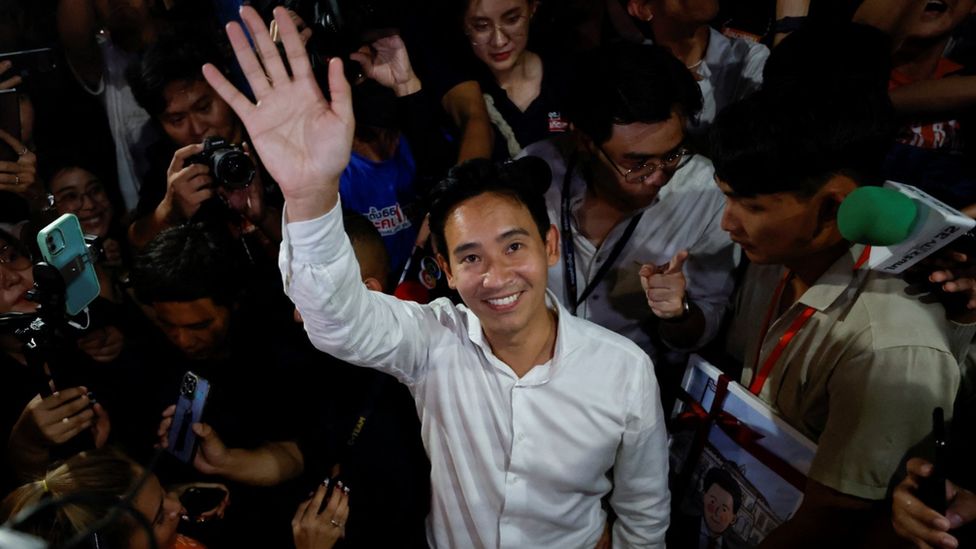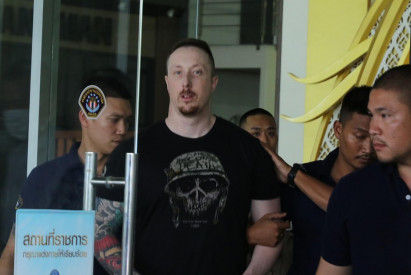North Korea says it will launch its first military spy satellite in June
SEOUL: North Korea will launch its first military reconnaissance satellite in June for live monitoring of US military activities, state media KCNA reported on Tuesday (May 30). In a statement carried by the KCNA news agency, Ri Pyong Chol, vice-chairman of the Central Military Commission of the ruling Workers’ Party,Continue Reading
Srettha denies rumoured ‘secret deal’ to usurp MFP

Srettha Thavisin, one of Pheu Thai’s three prime ministerial candidates, on Monday denied in a tweet rumours about a “secret deal” to form another coalition led by the Pheu Thai.
He tweeted the message after a photo of him and Bhumjaithai leader Anutin Charnvirakul at a Leicester City match at the King Power Stadium in the UK circulated. Mr Srettha said their encounter was a coincidence.
The property tycoon said that he had known the family of Vichai Srivaddhanaprabha for years and had attended the match to support Leicester City’s current bid to escape relegation.
“As for Mr Anutin, I know him personally, and we exchanged greetings and talked when we bumped into each other. There was no political talk or deal. We don’t have to come to England to talk [about politics],” he wrote.
The encounter between the pair followed rumours about a secret deal between parties.
Former massage parlour tycoon Chuvit Kamolvisit had posted on his Facebook page that secret negotiations were conducted to plot a course should the Move Forward Party (MFP) fail to gather more than half of the House seats required to form a government.
Mr Chuvit said the secret deal was called “come home”, a reference to former prime minister Thaksin Shinawatra who recently announced his intention to return to Thailand in July this year. Thaksin tweeted on Sunday night that he was puzzled by Mr Chuvit’s “secret deal” post. He said his daughter, Paetongtarn, who is another Pheu Thai prime ministerial candidate, had confirmed the party’s support for the MFP.
Ms Paetongtarn also responded to the rumour in a light tone, posting a photo of a party meeting attended by key figures with the caption “secret deal or love deal!” in response to the rumour.
Pheu Thai leader Cholnan Srikaew said on Monday the party was not involved in secret negotiations of any kind and that Mr Srettha’s trip to England had been for personal reasons only.
Mr Chuvit on Monday posted another message on social media, saying the secret meeting had taken place in Malaysia’s Langkawi to discuss the formation of an alternative alliance comprising Pheu Thai, Bhumjaithai, Palang Pracharath, the Democrats and Chartthaipattana.
Commentary: Even without WhatsAppâs new Chat Lock feature, itâs never a good idea to check your partnerâs phone

Interestingly, even in cases of years of extreme snooping and accusations of infidelity due to delusional jealousy, aggrieved spouses continue to stand by their partners.
For individuals who engage in snooping behaviour, it is essential to recognise the futility of their negative suspicious thought processes leading up to the snooping. Negative thoughts that a partner has done something wrong only perpetuates a cycle of resentment, distance, further suspicion and a need to snoop.
Instead, it is crucial to start working on building trust in the relationship. Have open and honest conversations with your partner, and express your concerns, insecurities, and fears.
Ironically, there have been cases where the fear of one’s partner cheating can sometimes be a self-fulfilling prophecy with a partner citing the stress of dealing with a jealous spouse as one of the reasons for their discretion.
If discussions become heated, seeking the assistance of a couple or marriage counsellor can facilitate non-confrontational communication, as well as establish healthy boundaries, and further rebuild trust.
At the end of the day, securing our devices and chats may help protect our personal information, but it does little to build trust in romantic relationships.
Double or triple-locking a chat only serves as a red flag that one has something to hide from one’s partner and does nothing more than arouse suspicion.
Dr Lim Boon Leng is a psychiatrist at the Gleneagles Medical Centre.
Singapore most expensive Asia Pacific city to own or rent private home, says study
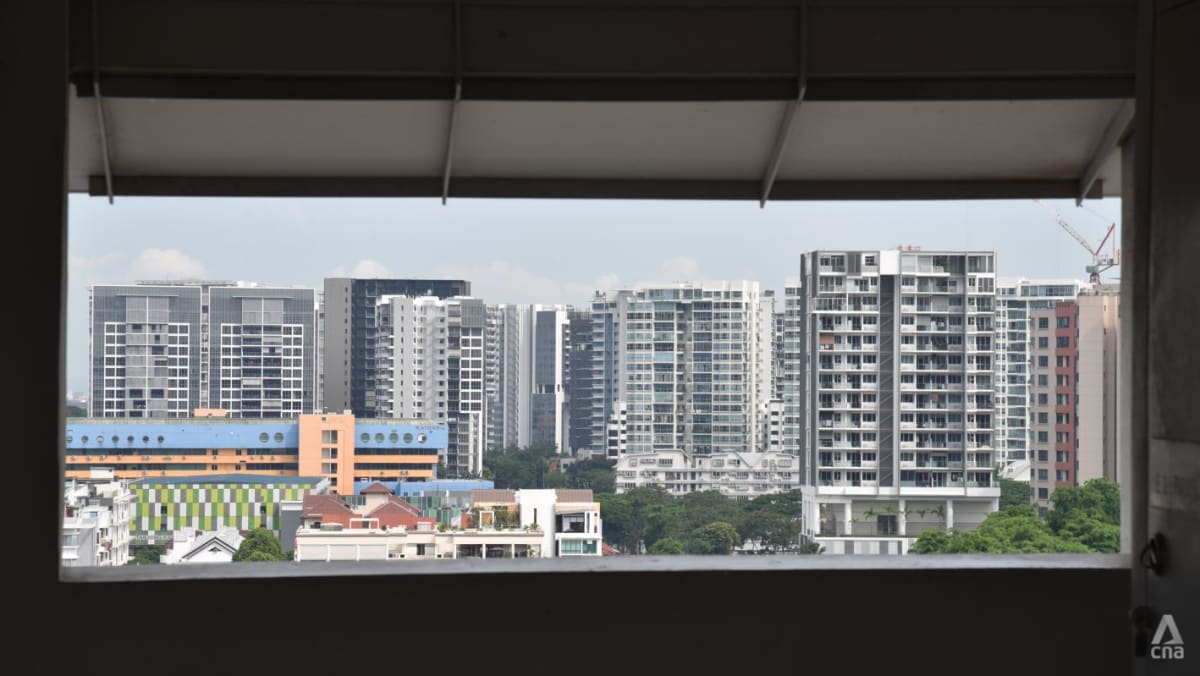
SINGAPORE: The median price of a private home in Singapore was US$1.2 million (S$1.6 million) in 2022, the highest among cities in the Asia Pacific, according to a report published on Tuesday (May 30).
In the latest Home Attainability Index by the Urban Land Institute (ULI) Asia Pacific Centre for Housing, Singapore also ranked as the region’s most expensive place to rent a private home.
The ULI Asia Pacific Centre for Housing bills itself as a think tank that aims to advance best practices in residential development and address housing issues relevant to the region.
In terms of affordability, the median private home price in Singapore was 13.7 times the median household income, a figure that dropped to 4.7 for public Housing Board flats. On the latter measure, Singapore ranks as the second-most affordable city in the Asia Pacific, after Brisbane, with a ratio of 4.5.
The report gives a snapshot of the extent to which housing is attainable in 45 cities in nine countries in the Asia Pacific: Australia, China, India, Indonesia, Japan, the Philippines, Singapore, South Korea and Vietnam.
In the past year, Singapore’s median private-sector home price increased more than 8 per cent, while Hong Kong’s median home price fell 8.7 per cent, the report said.
It cited a few factors that led to the price increases in Singapore, including a large influx of immigrants and a growing trend of young professionals moving out of family homes for more space and freedom.
There was also a reduced new supply of housing in the past few years due to a COVID-induced disruption to the supply chain of building materials and labour.
The Singapore government has tried to address the issue of rising prices with a series of property cooling measures. The latest set, introduced in April, included measures such as the doubling of buyer’s tax for foreigners to 60 per cent.
HONG KONG HOME PRICES
In contrast, home prices in Hong Kong fell substantially, returning to 2017 prices. This was mainly caused by a drop in population and a rising mortgage interest rate, the report said.
The current median home price in Hong Kong is US$1.16 million, an 8.7 per cent fall from the preceding year.
However, Hong Kong led the way on a per square metre basis. The median home price per sq m in Hong Kong was US$19,768, almost twice that of Singapore’s US$10,715. By this measure, Singapore ranks third, after Hong Kong and Shenzhen.
HOME OWNERSHIP
In terms of home ownership, Singapore continues to have the highest rate of nearly 90 per cent across public and private housing. This is due to the government’s “consistent commitment to enable its citizens to own homes at reasonable prices from the early years of the country’s independence in the 1960s”, said the report.
The median HDB price went up from US$379,000 to US$409,000, an increase of 7.9 per cent, and the ratio of median HDB price to median annual income increased from 4.5 to 4.7, the second-lowest in the list.
For private homes in Singapore, the ratio jumped to 13.7.
Topping the list was Shenzhen (35.0), followed by Ho Chi Minh City (32.5). Hong Kong’s ratio was 26.5, a sharp drop from the previous year’s 30.5.
Monitor lizards have ‘adapted well’ to urban areas, will flee when threatened: Wildlife experts
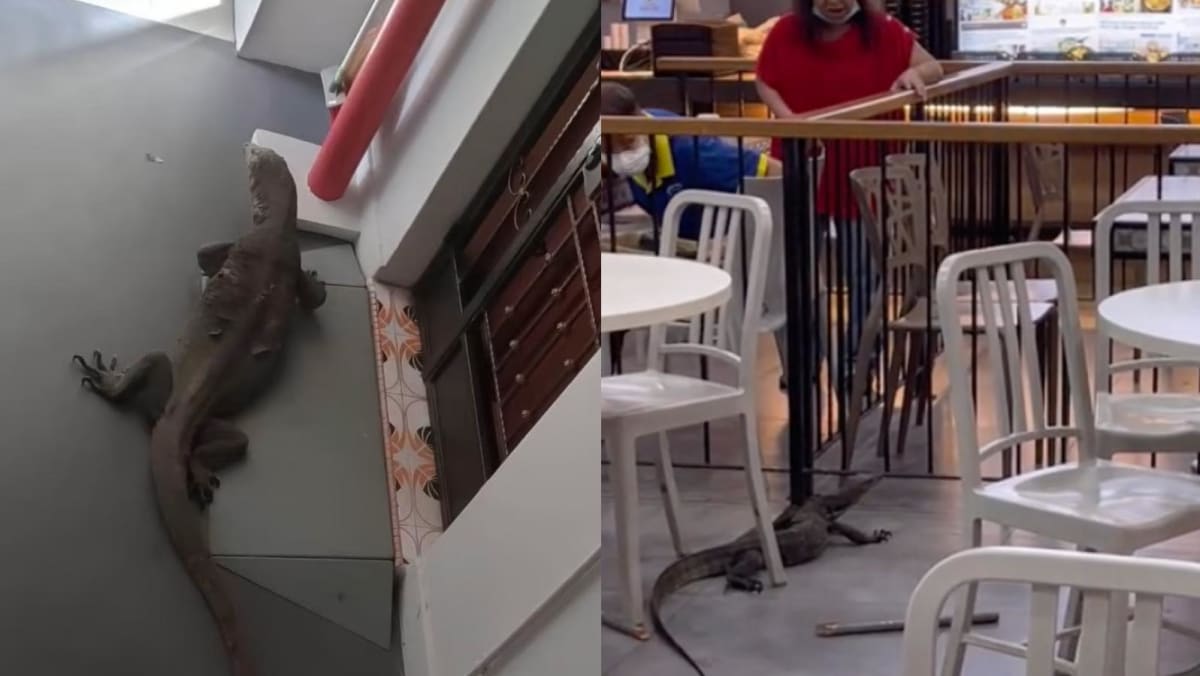
SHOULD PEOPLE BE CONCERNED?
Dr Lum said that monitor lizards – like most wild animals – may try to defend themselves if they are cornered and feel threatened, but will “gladly” choose an escape route if there is one.
While they do not pose any danger, how humans react to them and the possibility of encounters with monitor lizards turning ugly is a reason for concern, he added.
“Even if a monitor lizard walks into a flat, it would pose little to no danger to its occupants. But they can give people an almighty fright,” Dr Lum said.
“I can imagine some people being very scared by a monitor lizard – they can easily surpass a meter from nose to tip of the tail – especially if they turn up outside your door.”
Mr Kannan agreed that monitor lizards do not pose any harm if people keep a “safe and respectful distance”.
Nevertheless, he expressed concerns that interactions with monitor lizards, such as the Bedok North one, stem from “increasing detrimental pressures on local wildlife”.
WHAT TO DO
People who come across a monitor lizard should keep a distance, allow space for it to move or leave and make sure others do not attack it.
“If the monitor is in a space where it can’t leave or it’s too far from any kind of natural habitat, do alert the relevant authorities or organisations who’d help with proper relocation of the monitor,” Mr Kannan from ACRES added.
Court ‘may act on’ Pita share issue
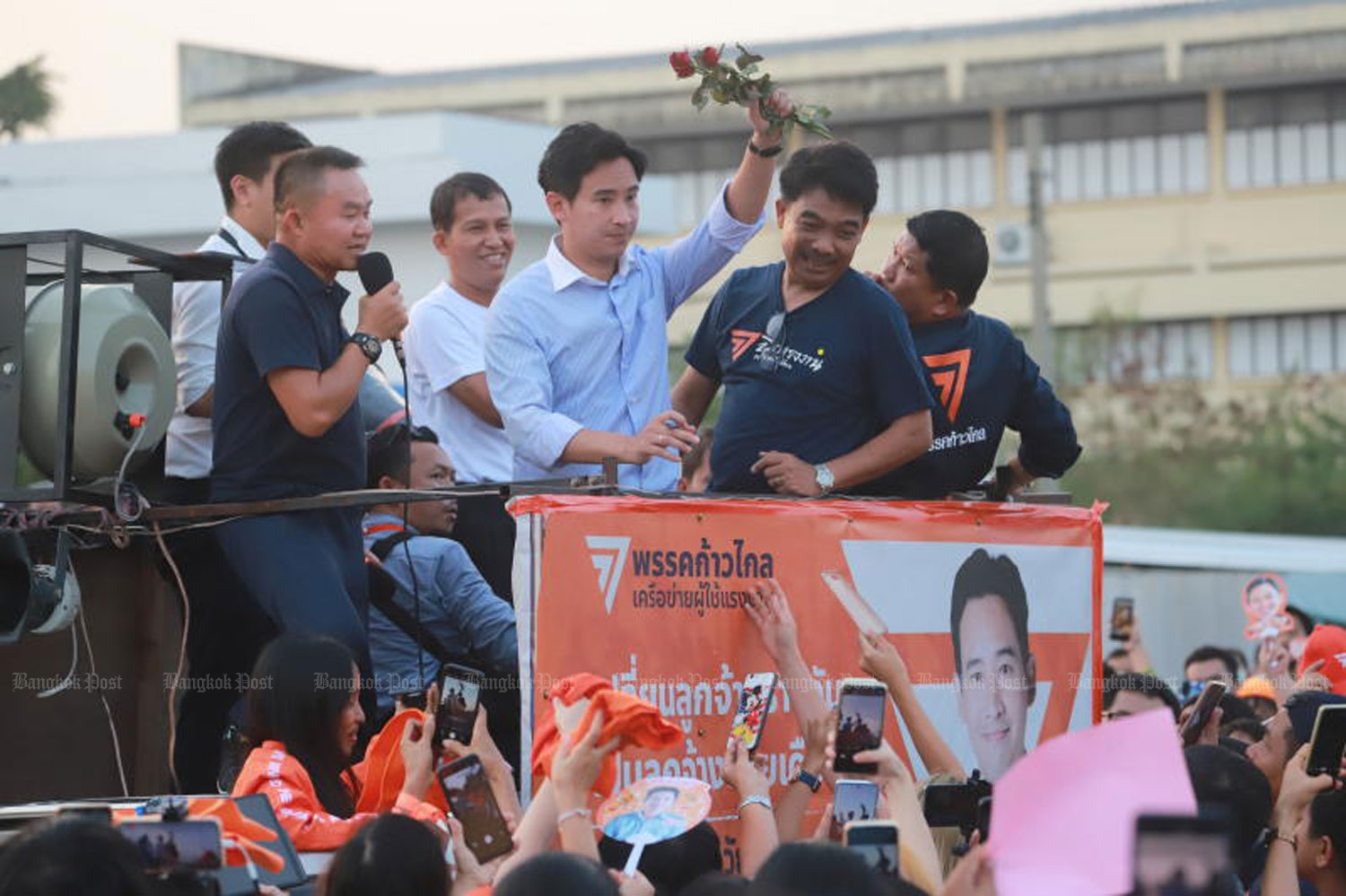
The Constitutional Court may suspend Move Forward Party (MFP) leader Pita Limjaroenrat if it agrees to hear the case involving his media share ownership, says Deputy Prime Minister Wissanu Krea-ngam.
The Election Commission (EC) has begun its probe into whether Mr Pita, who is the party’s list-MP and prime minister candidate, was eligible to run in the election due to his alleged holding of 42,000 shares in a media company.
The constitution prohibits electoral candidates from holding stakes in media companies.
Mr Wissanu said the EC might endorse Mr Pita as a list-MP while the probe is underway, and if the EC rules in Mr Pita’s favour, the case is closed. However, if the poll agency rules against him, the case will be brought to the Constitutional Court, which may suspend Mr Pita pending its decision.
The EC can investigate the complaint before or after the election results are officially announced.
The deputy prime minister cited as an example the case against Thanathorn Juangroongruangkit, former leader of the now-dissolved Future Forward Party (FFP), who was accused of violating the share-holding rule.
The court voted to suspend Mr Thanathorn as an MP when accepting the case against him in May 2019.
Mr Thanathorn was then nominated as prime minister for a vote in parliament in June while the ruling was handed down in November of that year.
When asked about the intent of the share-holding rule, Mr Wissanu said the matter is decided by the Constitutional Court, adding that the charter does not address the size of shares or a media company.
However, he noted that previous court rulings on similar share-holding violation claims against electoral candidates might be used to predict the outcome of the case against Mr Pita.
Meanwhile, political activist Ruangkrai Leekitwattana, who sought the EC probe into Mr Pita’s share-holding, yesterday gave a statement to the EC on the case and submitted the previous Constitutional Court rulings on holding shares to the poll agency.
Stage set for speaker showdown
Pheu Thai insists on its candidate for post

The Pheu Thai Party is still locking horns with the Move Forward Party over the House Speaker position, insisting the position be filled by one of its candidates ahead of a scheduled meeting today to thrash out a solution to the dispute.
Pheu Thai secretary-general Prasert Chantararuangthong said on Monday that the House Speaker role should be filled by Pheu Thai’s candidate.
“As the MFP wants to take the prime minister post, the House Speaker role should belong to Pheu Thai,” Mr Prasert said.
“It should be left to the two parties to thrash out the issue as it has nothing to do with other coalition partners,” he added.
Mr Prasert later said that Pheu Thai and the MFP have decided that the House speakership issue will be discussed by only the two parties at today’s meeting.
The dispute over who should get the House Speaker position has raged on for days in interviews and on social media, prompting MFP leader and prime minister candidate Pita Limjaroenrat on Friday to call on the coalition partners to remain united and settle the matter in a dialogue.
Chaithawat Tulathon, MFP secretary-general in his capacity as the party’s coordinator in the talks to form an MFP-led coalition, had earlier said the discussion is expected to begin at 2.30pm on Tuesday at the Prachachart Party’s headquarters.
Mr Pita is urging all coalition parties to cooperate, Mr Chaithawat said.
The meeting was initially intended to serve as a forum for the parties to discuss who will implement parts of a memorandum of understanding jointly signed on May 22, he said.
The MoU, signed by MFP and its coalition partners, sets out the policies they have agreed on.
However, a source at Pheu Thai said that the party disagreed with the MFP’s move to include other coalition partners in the discussion on the House Speaker role.
“It is a matter between the two parties. Pheu Thai believes the MFP wants to use other coalition partners to pressure Pheu Thai,” the source said.
“Pheu Thai also disagreed with the MFP’s unilateral decision to hold the discussion at the Prachachart’s headquarters.”
Mr Chaithawat said yesterday that he wanted the MFP and Pheu Thai to stop talking about the issue in media interviews or on social media to avoid stoking conflict and causing further confusion.
However, he said that Prachachart leader Wan Muhamad Nor Matha, a former House Speaker, had suggested the role be filled by the party that won the most House seats in the May 14 election. Meanwhile, the two deputy House Speaker positions should be candidates from parties that won the second and third largest seats.
Mr Chaithawat went on to say today’s meeting will also discuss the plan to set up a committee to ensure a smooth transition of power so the new government can get down to work immediately.
Commenting on the dispute over the House Speaker post, Deputy Prime Minister Wissanu Krea-ngam said that every political party wants the House Speaker role as it is the symbol of leadership of the legislative branch.
Mr Wissanu also said that the House Speaker must maintain neutrality during parliament meetings, and any MP who takes the role must resign as a party leader or executive first.
The House Speaker is one of the most important roles in politics as the speaker oversees House meetings and agendas.
If the MFP wishes to push its legislative initiatives and fulfil its campaign promises, it needs to take control of the post.
Meanwhile, Senator Somchai Swangkarn said the senators will weigh carefully the issues that each prime ministerial candidate will be focusing on before the vote for the next prime minister.
He indicated some decisions by senators could be based on issues in the MoU.
Some issues agreeable to some senators might be given more weight over others in their consideration before voting, he said.
Man uniting Indian families torn by colonialism
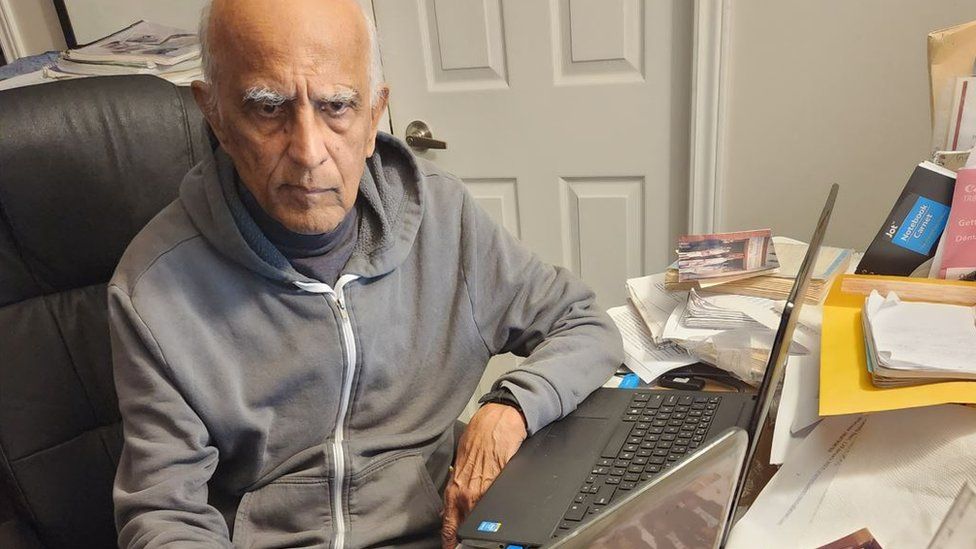 Shamshu Deen
Shamshu Deen “I feel very emotional and elated when I find a missing family. It also gives me a sense of accomplishment,” Shamshu Deen says.
For the past 25 years, Mr Deen, 76, a resident of Trinidad and Tobago, has been helping families in the Caribbean find long-lost relatives in India. He says he’s helped over 300 people so far.
The ancestors of these people arrived in the Caribbean – a former British colony – as indentured labourers in the 1800s and early 1900s, but lost touch with their families back home over time.
Mr Deen – a geography teacher turned geologist – is now helping the descendants of Indian indentured labourers in the Caribbean trace and reconnect with their loved ones.
During British rule in India, known as the British Raj, slavery had been abolished. But indentured labourers were used as “cheap labour” across the British Empire in response to a so-called labour shortage.
Many Indians travelled from their country to British colonies like the Caribbean, South Africa, Mauritius, and Fiji to work on sugar plantations between 1838 and 1917.
Even though most labourers went willingly – possibly because they were not fully aware of the conditions they would face or signed agreements when they were illiterate – others were forcibly taken abroad.
Some historians even described the system of indentured labour as the “new slave trade”.
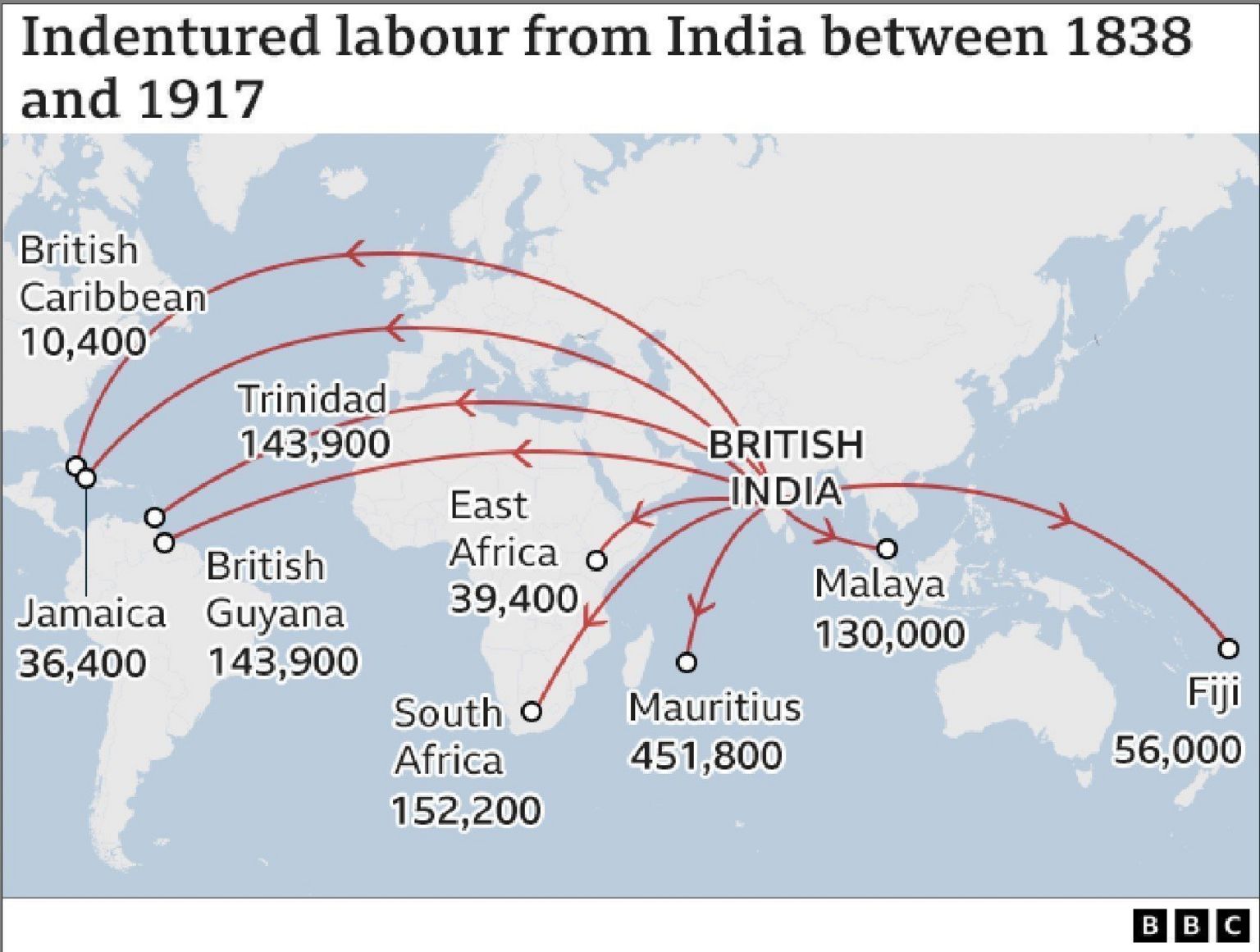
Mr Deen became curious about this system and the impact it had on families after he learnt that his grandfather’s grandfather – Munradin – had travelled to the Caribbean as an indentured labourer.
He was in school when he learnt that the land his house was built on had been purchased by Munradin.
“No-one in the family could tell us any more about him,” Mr Deen says.
In 1972, Mr Deen went to the Red House in Trinidad – which subsequently became the ministry of legal affairs – and sifted through piles of documents searching for the mystery man.
After about four hours, he found his name on the last page of a moth-eaten book.
He learnt that Munradin had left Calcutta (now Kolkata) on 5 January 1858 and reached Trinidad on 10 April the same year.
“We know he was educated and spoke English. Munradin worked on sugar plantations. Later, he started doing translation work. After finishing his indentured contract, Munradin went on to become a teacher and finally opened two shops. He had two wives and five children. The house he lived in was inherited by his children but was destroyed in a fire.”
Mr Deen eventually also found family members from his mother’s ancestry and could reconnect with relatives of the last person in his family to travel to the Caribbean, Bhongee.
She arrived in Trinidad in 1872 at the age of seven, accompanied by her parents and three siblings.
“I have only one photo of Bhongee, who died in 1949 when I was three years old. She lived to see her great-great-grandchildren,” Mr Deen says.
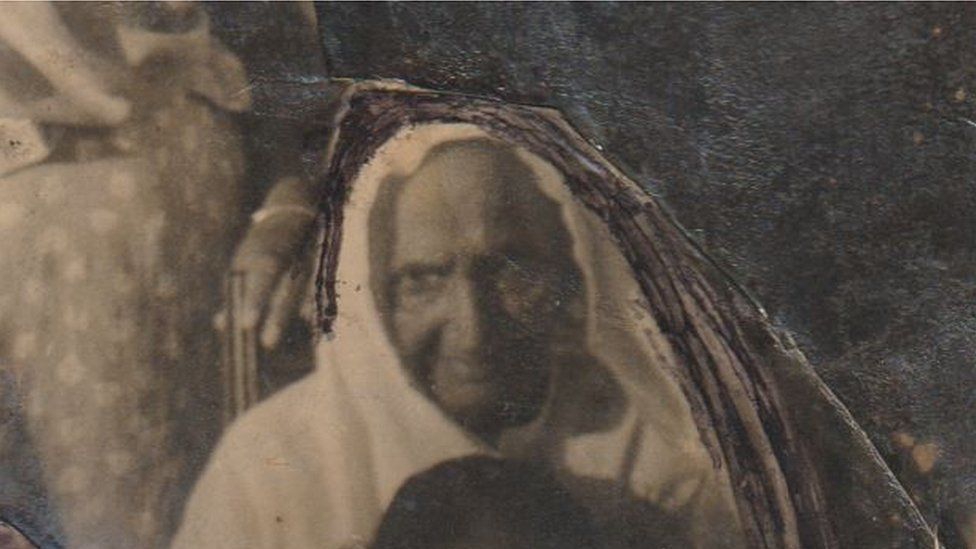
Mr Deen went on to become a geography teacher but his success in finding lost relatives caught the eye of the Indian High Commission in Trinidad. It gave him a scholarship to trace the relatives of 10 Hindu and 10 Muslim families.
He would later make this his career, becoming a genealogist and getting paid to do the work with the help of research teams in both Trinidad and India.
Some of the family reunions he has helped facilitate include that of two former prime ministers of Trinidad and Tobago, Basdeo Panday and Kamla Persad Bissessar.
Mr Deen also helped Trinidad-based David Lakhan, 65, find out more about his great-grandfather, who travelled from India to Trinidad in 1888 when he was 22.
“He just gave one name in a document – Lakhan. But I wanted to discover the strength and resilience behind his decision to travel such a long distance,” Mr Lakhan tells the BBC.
From the national archives, Mr Deen was able to dig up emigration documents which had the name of Mr Lakhan’s great-grandfather’s brother, father, caste and his village.
He then used his contacts in India to trace Mr Lakhan’s relatives, paving the way for a family reunion in India in 2020.
“We didn’t expect the whole village to come out and greet us. They garlanded us,” says Mr Lakhan’s wife, Geeta.
The family has since kept in touch with many of their Indian relatives, using translation tools to overcome language barriers. Ms Lakhan said she finds many similarities with them because of the cultural knowledge passed on by their common ancestors.
They are now feeding the curiosity of their 7-year-old grandson by telling him about their trip to India, in the hope that he will take an interest in his heritage.
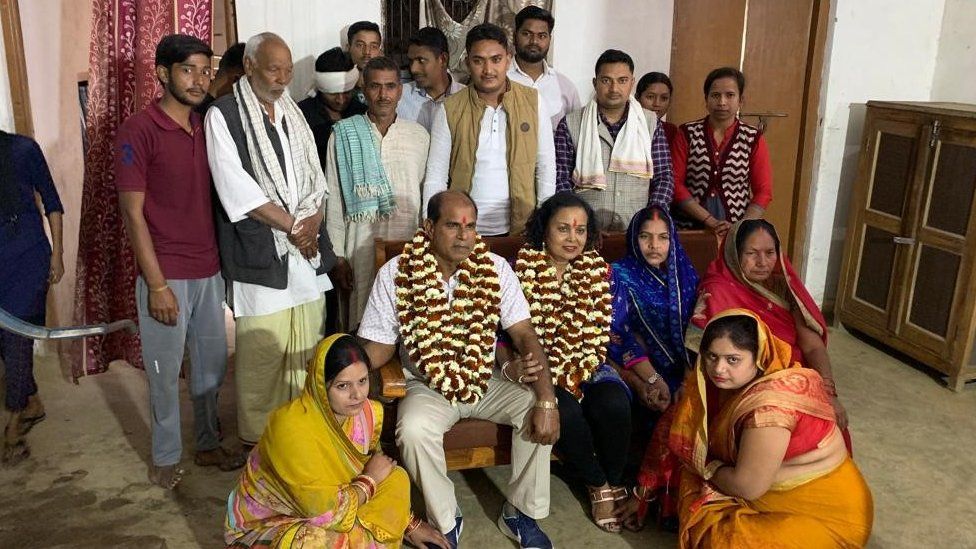
Mr Deen says that tracing people today is a bit easier than it was at the beginning of his career due to digital maps and better access to historical records, but challenges remain. He estimates that he has about an 80% success rate in every case.
“I can’t get everyone’s ancestry. In some cases, wrong information was given in the documents,” he explains.
Also, some indentured workers died while making their journey to Trinidad. Those who managed to reach often lived in dire conditions, their lives never being documented in any official way.
But many workers also voluntarily stayed back in Trinidad after the end of their contract and were able to live as free people, he says.
Mr Deen says he doesn’t want to give up his work even though he has retired. In fact, just after he retired, he went to India for six months in 1996, and tracked down 14 more families.
He says the work he does still gives him “happiness and health”.
“Every case is a puzzle. No two cases are the same,” Mr Deen says.
“Like all humankind, we are all migrants. But the thread of Indian heritage is sewn deeply in us.”
BBC News India is now on YouTube. Click here to subscribe and watch our documentaries, explainers and features.

Read more India stories from the BBC:

Related Topics
-
-
17 August 2022
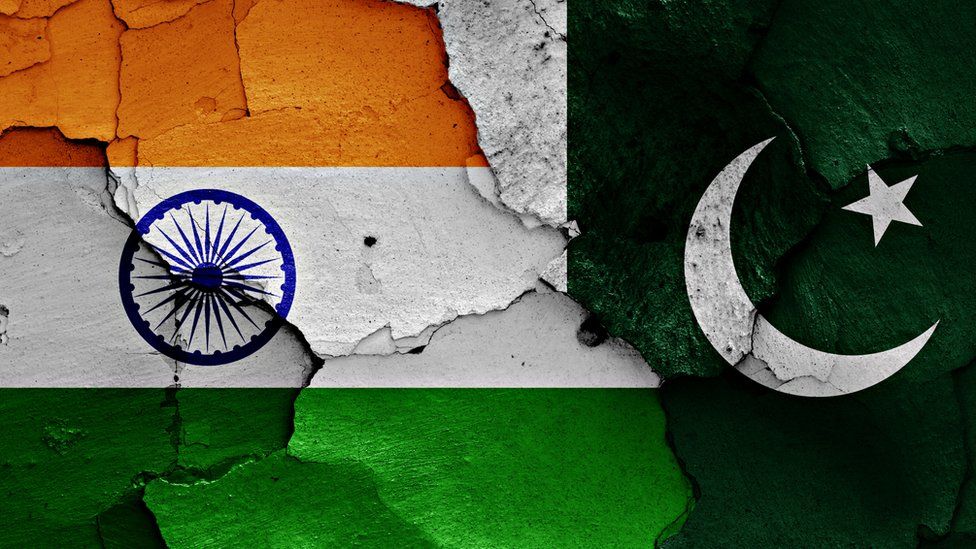
-
Pita Limjaroenrat: Thai election upstart who vows to be different
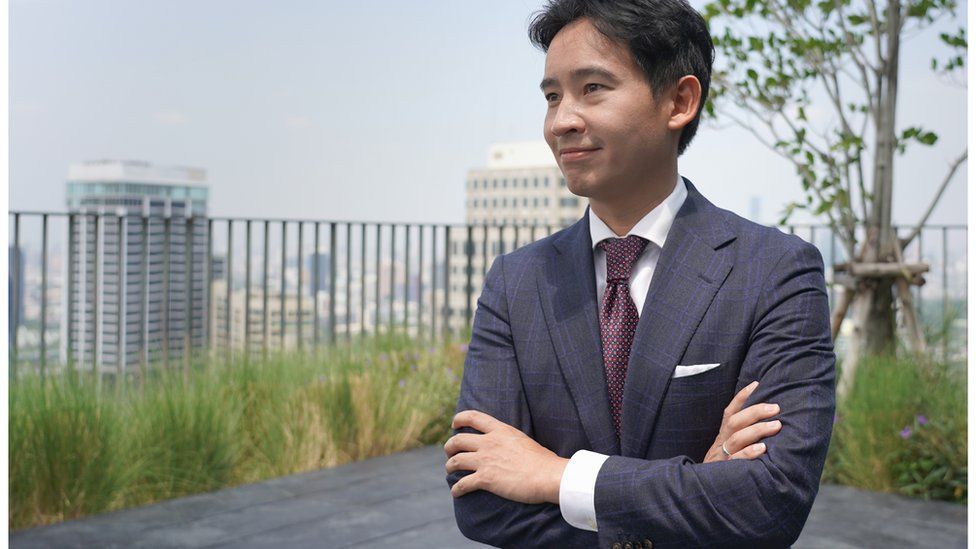
Pita Limjaroenrat is not your typical Thai politician.
In a country where the average age of cabinet ministers is 65, where unquestioning deference to elders is still a cherished tradition, his youth – he looks far younger than his 42 years – and unabashed confidence make him stand out.
That he is, after a shock election result which put his reformist Move Forward party ahead of all the others, poised to become the youngest prime minister in 78 years, has stunned the conservative political establishment which has dominated Thailand for much of the modern era.
Difficult negotiations are now under way to form a coalition government with Pheu Thai, the second largest party, which has won every election held in Thailand since 2001, and had been expected to win the latest, held on 14 May.
Both Pheu Thai and Move Forward consider themselves to be progressive, opposed to military interference in politics like the 2014 coup, which deposed a Pheu Thai administration.
But the young activists of Move Forward outmanoeuvred the older party, and beat many of its candidates, with an imaginative, social media-based campaign offering voters a complete break with the past, and a different kind of political leadership.
“I’m different,” Pita tells me. “We are not getting into a coalition to pursue a quick fix, or to get me the prime ministership. I’m in government for the people. The world has changed.
“You don’t have to be a strong man, with toxic masculinity, to make sure ‘people have to listen to me, and I have to be the one in the spotlight all the time’.
“I don’t have to be perfect all the time. I can just be like a regular human being here in Thailand, riding motorcycles, eating on the streets like any other people.”
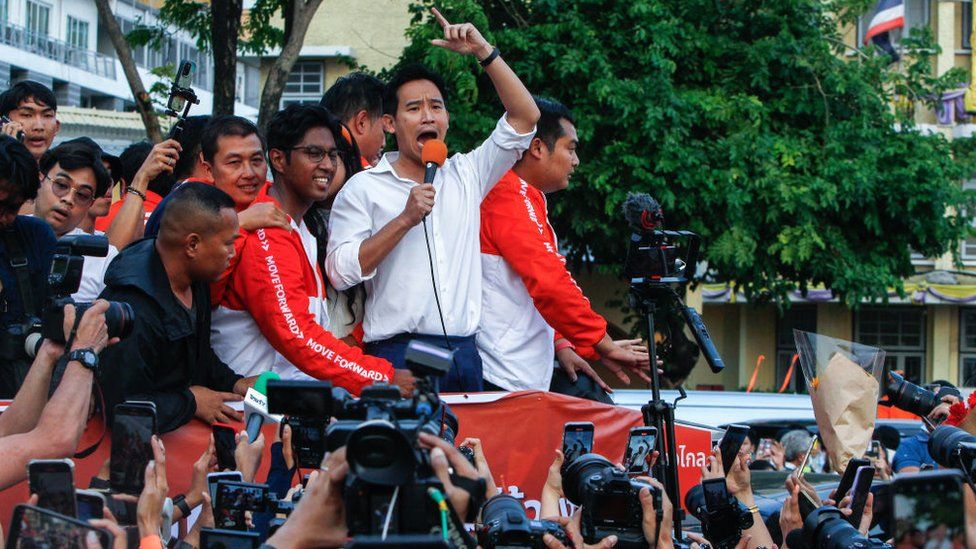
Pita Limjaroenrat was born into a wealthy Thai family.
He cites being sent to school as a teenager in New Zealand, the time he lived in the United States doing postgraduate study, and his experience working in the family rice-bran business, and then as an executive with the ride-hailing company Grab, as formative influences.
He admires down-to-earth leaders like New Zealand’s Jacinda Ardern and Uruguay’s José “Pepe” Mujica.
Move Forward has the most ambitious reform agenda of any party in Thailand’s electoral history.
Among the 300 policies in its manifesto are equal marriage for LGBTQ Thais, ending military conscription, tackling business monopolies, and overhauling the education system to make it fit for a 21st Century economy.
The party plans to scrap the military-drafted constitution, and bring the army’s many business interests under the Ministry of Finance.
“It is time to end the cycle of military coups, and time to end the corruption in politics which opens the door to coups,” Pita says.
But the party’s most controversial proposal is to amend the lèse majesté law, which imposes long jail sentences on those convicted of insulting the royal family, and to begin a conversation about the relationship between the monarchy and the Thai people.
Many of the 250 senators, who were appointed by the previous military government, and who are required to join the parliamentary vote for the next prime minister, say they will block Move Forward from taking office over this issue.
“The sentiment of the era has changed,” says Pita.
“I think we now have the maturity and tolerance to speak about the monarchy. Even conservatives understand what the role of a constitutional monarchy should be in the 21st Century.
“We won the votes of 14 million people. And they understood – it was clear, it was transparent – that this was one of the agendas we wanted to push.”
The Move Forward leader believes that his coalition, which currently holds 312 out of the 500 seats in the lower house of parliament, will get the necessary backing of 64 senators to give them the super-majority they need.
Sources inside the senate, though, say this will be difficult to achieve so long as Move Forward remains committed to amending the lèse majesté law; but that at least some of the senators, who only have a year left of their unelected terms, do feel uneasy about opposing a coalition which won a clear majority in the election.
Pita Limjaroenrat is promising a new foreign policy as well.
Under the military-backed governments of the past decade Thailand is widely viewed as having punched below its weight in international affairs, with Prime Minister Prayuth Chan-ocha taking little interest in foreign policy.
“Definitely we need to engage the international community more,” Pita says.
“We have to rebalance. We have to speak out more, and we have to side with the rules-based world order. No words, no weight in foreign policy.
“And a lot of our problems, whether its economic, it’s air pollution, it’s the price of fertiliser, come from the rest of the world.”
His government, he says, would work more closely with Thailand’s Asean (Association of Southeast Asian Nations) neighbours to seek a solution to the civil war in Myanmar, and he would try to channel more humanitarian aid across the Thai-Myanmar border.
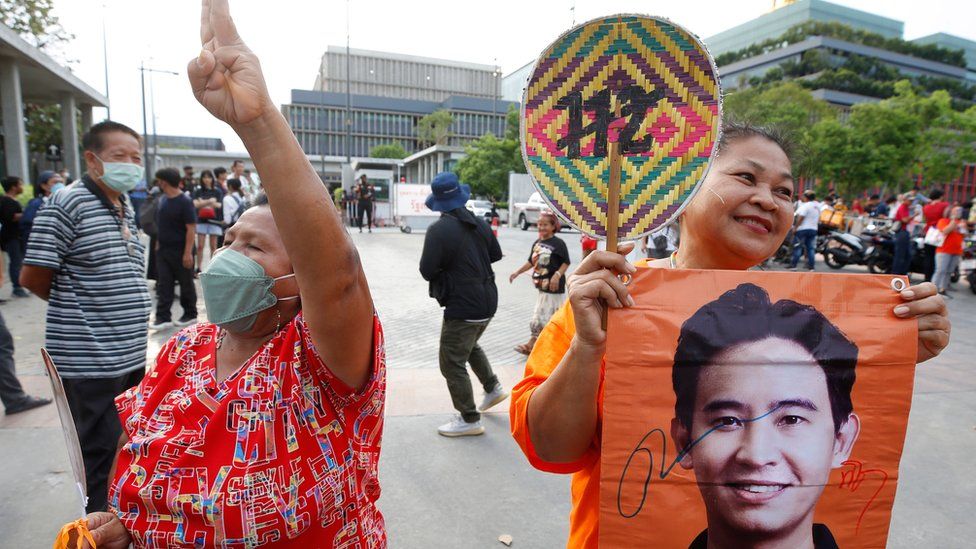
The challenges still confronting this young prime minister-in-waiting are daunting.
There is the sceptical senate, and the need to hammer out a deal with Pheu Thai, which won only ten seats fewer than Move Forward and has more experienced negotiators in its team.
Pheu Thai has been demanding top ministries, and the powerful parliamentary speaker position, which Pita views as a priority to get his many new bills tabled.
His party is made up mainly of first-time MPs, some too young to pass the 35 years age threshold to be a minister, some still facing serious criminal charges from their past political activism.
Ideologically more flexible, and taking a hands-off approach to the monarchy, Pheu Thai has the option of joining an alternative coalition which includes parties in the outgoing administration.
Move Forward has ruled out such a compromise, having won many of its votes through its promise not to do deals with the generals.
Pita Limjaroenrat believes neither party can abandon what he is calling a coalition of dreams and hope, because of the damage it would do to their reputations.
He wears the weight of these responsibilities lightly, still making time to spend with his family, and breezily optimistic that things will work out.
“I don’t want to be like those other Thai politicians still fighting for positions well into their 70s and 80s,” he tells me.
“I want to keep doing this for maybe another ten years, and then it will be time for something else.”
Related Topics
Canadian mobster hit suspect brought to Thailand

Alleged contract killer Matthew Dupre, wanted for the shooting of a Canadian gangster in Phuket on Feb 4, 2022, has been extradited to Thailand to face a murder charge.
He was brought back by a team of Crime Suppression Division (CSD) special weapons and tactics officers and members of an air force special operations unit on a special flight from Vancouver, Canada.
The flight, with Mr Dupre on board, landed at Don Mueang Airport’s Wing 6 terminal on Sunday night around 11pm. The airport was under tight security and was temporarily closed. The flight was met by about 30 other members of the Hanuman unit and air force ground security.
From the airport, he was taken by motorcade to CSD headquarters. His detention is now under the supervision of the Central Investigation Bureau (CIB). Mr Dupre has denied all allegations made against him, a source said.
He was transferred from the CSD yesterday afternoon to the Bangkok Remand Prison.
The suspect was guarded by the CSD’s Hanuman special weapons and tactics unit as he was considered a dangerous suspect and a member of an important international criminal network.
National police chief Pol Gen Damrongsak Kittiprapas held a press conference at the CSD about the extradition.
According to Pol Gen Damrongsak, Mr Dupre is a retired soldier who had spent time in Afghanistan and had worked in the security industry in Middle Eastern countries.
On Feb 4, 2022, Jimi Sandhu, a Canadian mobster, was found dead in the parking lot of a beachfront villa resort on Rawai Beach in Phuket’s Muang district. Sandhu’s body had been riddled with bullets, and 21 casings were found at the scene.
Two foreign shooters were captured entering the villa by a security camera; one of them was identified as Mr Dupre.
The second suspect in the case, Gene Lahrkamp, 36, died in a plane crash in Canada in May 2022 with a man who was reportedly involved with the Independent Soldiers, an organized crime group based in British Columbia.
Pol Gen Damrongsak said Mr Dupre was a prime suspect along with Lahrkamp, as the Red Scorpions, a crime network they belonged to, had a conflict with the network that Sandhu belonged to.
On Feb 11, 2022, the Phuket Court issued a warrant for the arrest of Mr Dupre and his alleged accomplice on charges of premeditated murder, having guns and ammunition in possession without permission, and illegally carrying and using the guns in public.
Police later found the two suspects had left Thailand for Canada on Feb 6.

